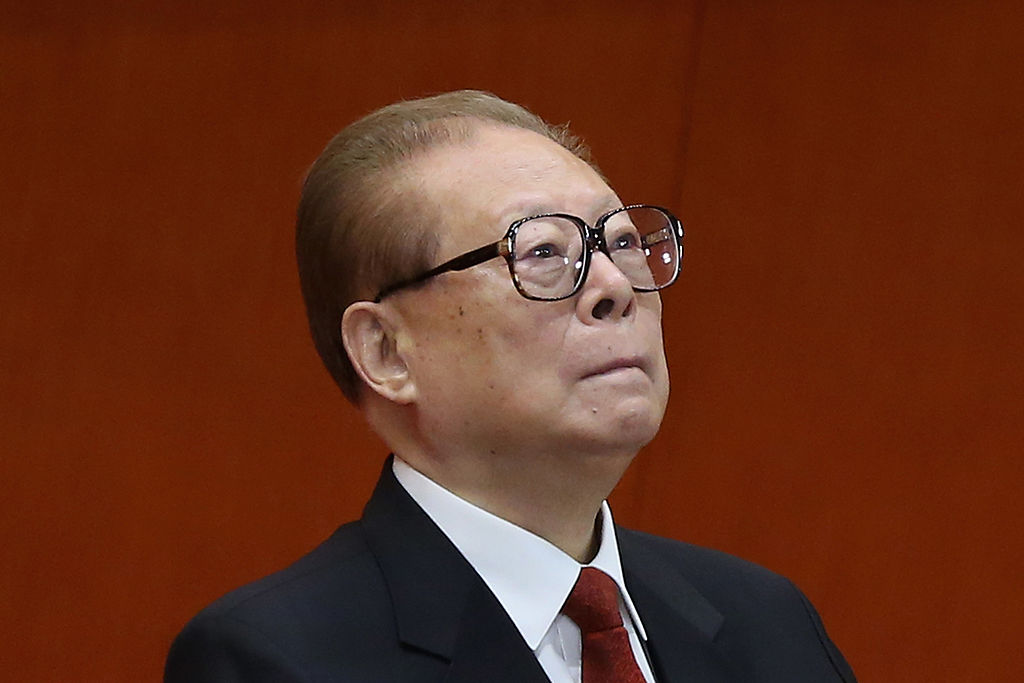It is a measure of the dark places Xi Jinping is taking China politically and economically that the rule of Jiang Zemin, who died on Wednesday aged 96, is being looked back upon with some nostalgia. During Jiang’s later years, ‘toad worship culture’ (a play on his supposed amphibious features) became popular on social media as an oblique way of criticising Xi’s rule and praising China’s relative openness under Jiang.
Stability was always Jiang’s top priority. He didn’t hesitate to crack down against any perceived threat to the CCP
Jiang was plucked from relative obscurity to head the Chinese communist party in 1989, soon after the Tiananmen Square massacre, and was president of China from 1993 to 2003. His death, from leukaemia and multiple organ failure according to the official Xinhua news agency, comes as China faces widespread protests against draconian Covid controls –arguably the biggest challenge to the party since Tiananmen.
Paramount leader Deng Xiaoping brought Jiang to Beijing from Shanghai, where he was party boss, in order to stabilise the political situation after the Tiananmen carnage, which had turned China into a virtual pariah state.

Get Britain's best politics newsletters
Register to get The Spectator's insight and opinion straight to your inbox. You can then read two free articles each week.
Already a subscriber? Log in







Comments
Join the debate for just £1 a month
Be part of the conversation with other Spectator readers by getting your first three months for £3.
UNLOCK ACCESS Just £1 a monthAlready a subscriber? Log in